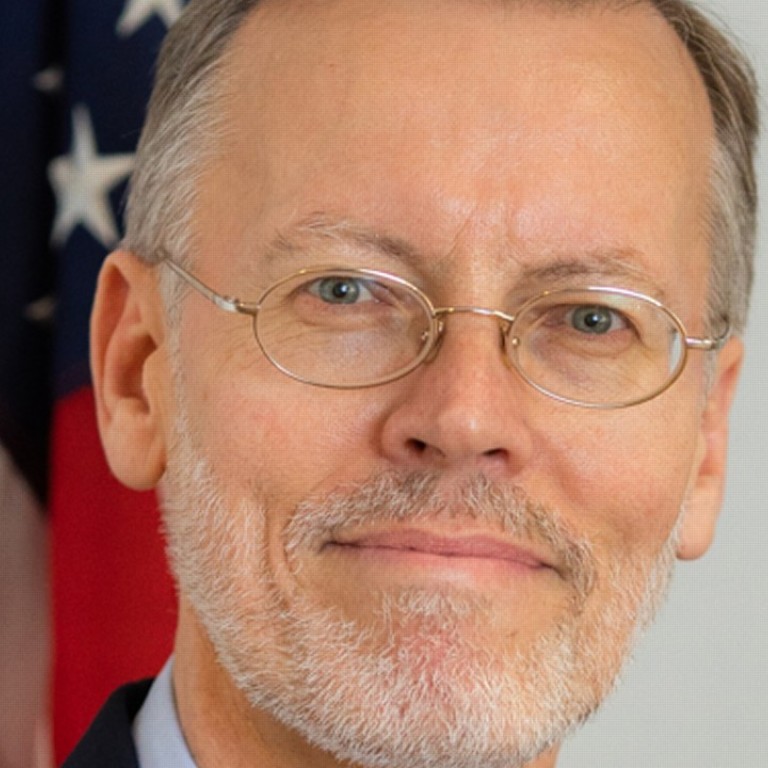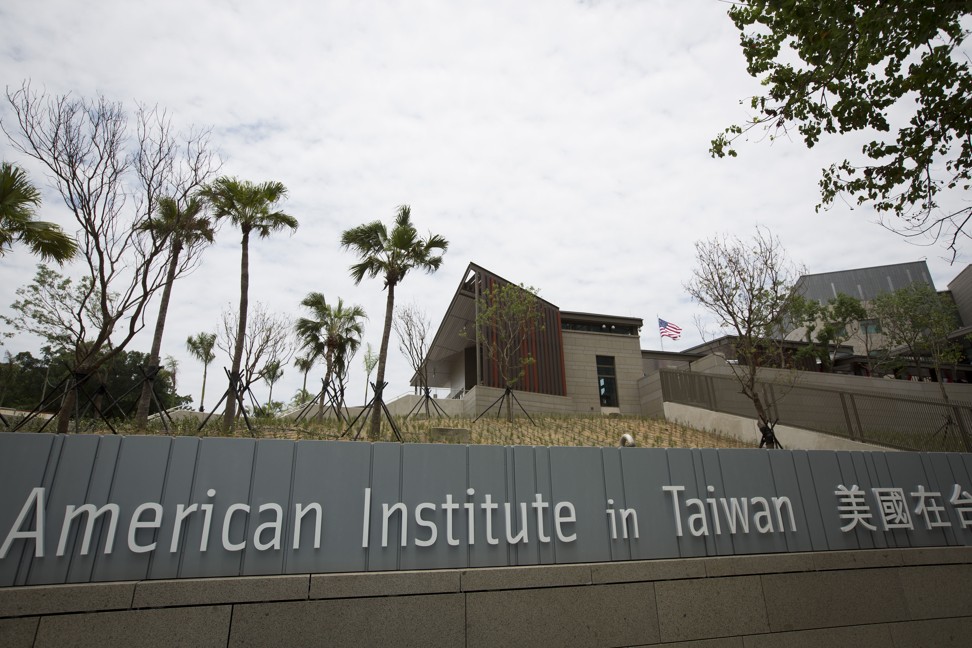
US names career diplomat Brent Christensen as unofficial envoy to Taiwan
New AIT director is well versed in cross-strait affairs and analysts say his appointment is an effort to avoid antagonising Beijing
Washington has appointed a career diplomat as its unofficial envoy to Taiwan in a move analysts say shows it is trying to avoid further antagonising Beijing.
Brent Christensen, who has nearly three decades of diplomatic experience and is well versed in Taiwan and mainland affairs, will succeed Kin Moy as director of the American Institute in Taiwan, Washington’s de facto embassy in the absence of official ties with the island.
“The AIT is pleased to announce the selection of Mr William Brent Christensen as the new director of its Taipei office, succeeding Mr Kin Moy beginning summer 2018,” the AIT said in a statement on Wednesday.
Beijing’s demand to refer to ‘China Taiwan’ still being defied by US airlines
Christensen has been with the US foreign service for close to 30 years and has extensive experience in senior positions relating to Taiwan and mainland China, the statement said, referring to his stint as AIT deputy director from 2012 to 2015, when Ma Ying-jeou was president.
The island’s government welcomed the appointment, saying Christensen was familiar with Taiwan-related issues and had made significant contributions to promoting closer ties.
“We hope that both sides can continue to advance our many bilateral exchange programmes after Christensen takes office and brings our friendly ties into a new era,” Taiwan’s presidential office said in a statement.

The announcement of Moy’s successor has ended months of speculation over who Washington would appoint to replace him amid an escalating trade dispute between the US and mainland China and heightened security tensions over Beijing’s military build-up in the disputed South China Sea.
“By appointing a career diplomat, it shows that the US doesn’t want to further antagonise Beijing but is choosing to deal with US-Taiwan-China relations in line with past practice,” said Wang Kung-yi, a political science professor at Chinese Culture University in Taipei.
“Unlike a political appointee who would follow the instructions of the leader, a career diplomat will follow the existing systems and practices to do things in a stable and smooth way,” Wang said.
Why new de facto US ‘embassy’ in Taiwan may further rock ties with China
Beijing – which regards Taiwan as a wayward province subject to eventual union, by force if necessary – has warned the United States and other countries against forging official ties with the island, and any sign of this has triggered tensions across the Taiwan Strait.
Although Washington switched diplomatic recognition from Taipei to Beijing in 1979, it has continued to support the self-ruled island militarily under the Taiwan Relations Act that was instituted after the change.
Kuomintang lawmaker Wang Yu-min said Christensen was well versed in both Taiwan and mainland affairs, and as a career diplomat he was not expected to propose anything that would affect relations between Washington and Beijing.
“Christensen is expected to follow what has long been practised by the State Department in terms of US-Taiwan relations,” she said.
Wang added that Taipei and Washington may develop closer ties under US President Donald Trump, who she said had tried to use the island as a pawn in dealing with Beijing.
In June, the AIT launched a new US$255 million office complex in Taipei in a sign of Washington’s increasing support as Beijing steps up pressure on Taiwan, including with military exercises around the island, poaching its diplomatic allies and pressuring foreign companies such as airlines to refer to Taiwan as a part of mainland China.
Taiwan’s critical battle to keep its diplomatic allies from switching sides
Beijing suspended official exchanges with Taipei after Tsai Ing-wen, of the independence-leaning Democratic Progressive Party, became president in 2016 and refused to accept the one-China principle that the mainland insists is the basis for any cross-strait dialogue.
Li Fei, deputy director of the Taiwan Research Institute at Xiamen University, said Christensen was seen as a centre-right politician, which would make him a safe choice for the AIT.
“The US will continue to play the Taiwan card in dealing with China,” Li said. “But it has to play it well or it will force China to resolve the Taiwan issue immediately,” he said, adding that this was why Christensen had been chosen for the job.
Before his previous role with the AIT, Christensen was director of the Statement Department’s Office of Taiwan Coordination, where he was involved in US policymaking on Taiwan. He has also had three assignments at the US embassy in Beijing, most recently working as an environment, science, technology and health counsellor.

